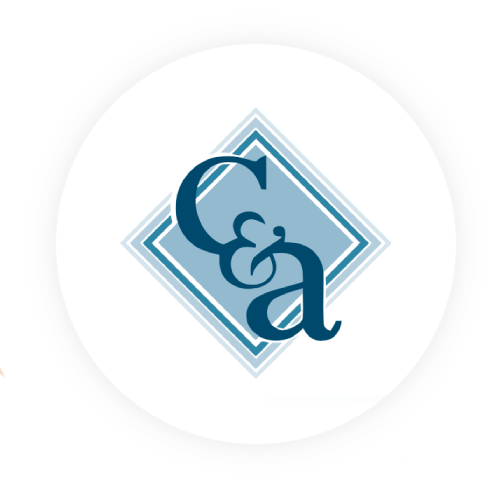From an Accreditation and Regulatory perspective, 2023 certainly has been an interesting year. As healthcare continues to recover from the pandemic, several significant hurdles remain in our path to full recovery. In light of these hurdles, we believe that Accreditation and Regulatory changes will be minimal at least for the first 4-6 months of 2024, allowing healthcare organizations to re-establish core components of their operations.
CMS Evaluation of Deemed Status Accrediting Organizations
As we recover, we have seen CMS take several steps to re-establish the expectations around the actual survey planning procedure and the actual delivery of survey services. The enforcement of a “zero-notice/announcement” of an impending survey has been met with mixed responses by organizations that are concerned about the creation of security risks, and as a result, many accrediting organizations are working on creating processes to provide their clients with surveyor bios immediately following the start of each survey. We encourage organizations to consider how to balance their security concerns with the need for the survey process to be completely unannounced. CMS has also resumed its pre-pandemic evaluation of the various accrediting organizations' delivery of services. Contrary to the old model in which State surveyors would conduct follow-up validation surveys typically within 45 days of the initial survey event, the new model utilizes the services of two federally contracted consulting companies that will accompany the accrediting organization's survey team and observe the individual skills of the accrediting organization's surveyors and the delivery of services to ensure they meet the expectations of CMS.
CMS Patient Complaint Process
CMS is also focusing new efforts on the Patient Complaint Response process. This new process will require accrediting organizations to deploy surveyors to an organization when significant complaints about the quality and safety of care are received. There will no longer be an option to submit the results of your internal investigation to the accrediting organization. Additionally, the accrediting organization will no longer be providing any communications about the existence of the complaint. While not well defined by CMS, we understand from The Joint Commission that when a complaint may reflect an Immediate Threat to Life or Threat to Health and Safety, surveyors will be deployed to the organization within several days of receipt of the complaint. We believe that each accrediting organization will follow similar approaches.
2024 Proposed Regulatory- Accreditation Changes
In looking at the regulatory/accreditation requirements that have been proposed for 2024, they are minimal to non-existent at this time. In looking specifically at the actions taken by The Joint Commission recently and their goals, we have seen significant effort put into streamlining the TJC Accreditation Requirements across all of their accreditation programs. This effort aligns The Joint Commission standards with the CMS Conditions of Participation or Conditions for Coverage while supporting organizations as they move through the hurdles that remain post-pandemic.
Workplace Violence and Healthcare Equity & Disparities Work
Recent federal requirements around Workplace Violence Reduction and Health Equity and Disparities are significant, essential bodies of work for each healthcare organization. While many organizations got off to a slow start on both of these initiatives, the hard work lies ahead as we are now charged with utilizing the data we have collected to identify gaps and create solutions to close those gaps. We would not be surprised if additional requirements related to both of these topics are announced in 2024.
USP Chapter 797
2023 also saw the finalization of the long-awaited United States Pharmacopeia’s Chapter 797, Pharmaceutical Compounding- Sterile Products. Initially proposed in early 2020, the initial proposed standards were pulled back and underwent a significant revision, resulting in an operationally more acceptable set of requirements. While the final requirements align better with hospital operations, there is still a significant amount of work each organization will need to complete in order to provide safer sterile compounds to our patients and achieve compliance with the requirements.
Healthcare Hurdles
Several significant hurdles remain for healthcare organizations. Top of mind are the following:
- Re-establishing our Quality and Patient Safety Programs
At the heart of every healthcare organization is their commitment to providing the highest quality, safest care possible. Many staff were on-boarded via a modified orientation process during the pandemic. Seizing the opportunity to reassess the effectiveness of the modified orientation process is essential for both emergency management preparedness and for our quality and safety programs, as many organizations modified their Standard Operating Procedures or Policies and Procedures to accommodate the limitations inflicted by the pandemic.
- Re-establishing our healthcare teams
In the absence of federal and/or state-mandated staffing levels, many organizations are reassessing their staffing models and considering using various types of healthcare workers to complement and support their healthcare providers. Several organizations have implemented virtual nursing support personnel very successfully this year.
While the number of new expectations for 2024 is minimal at this time, considerable work must be completed to revitalize our quality and safety programs and continue to advance our cultures of safety.
To learn more about Regulatory & Accreditation updates contact the C&A team at 704-573-4535 or email us at info@courtemanche-assocs.com.

